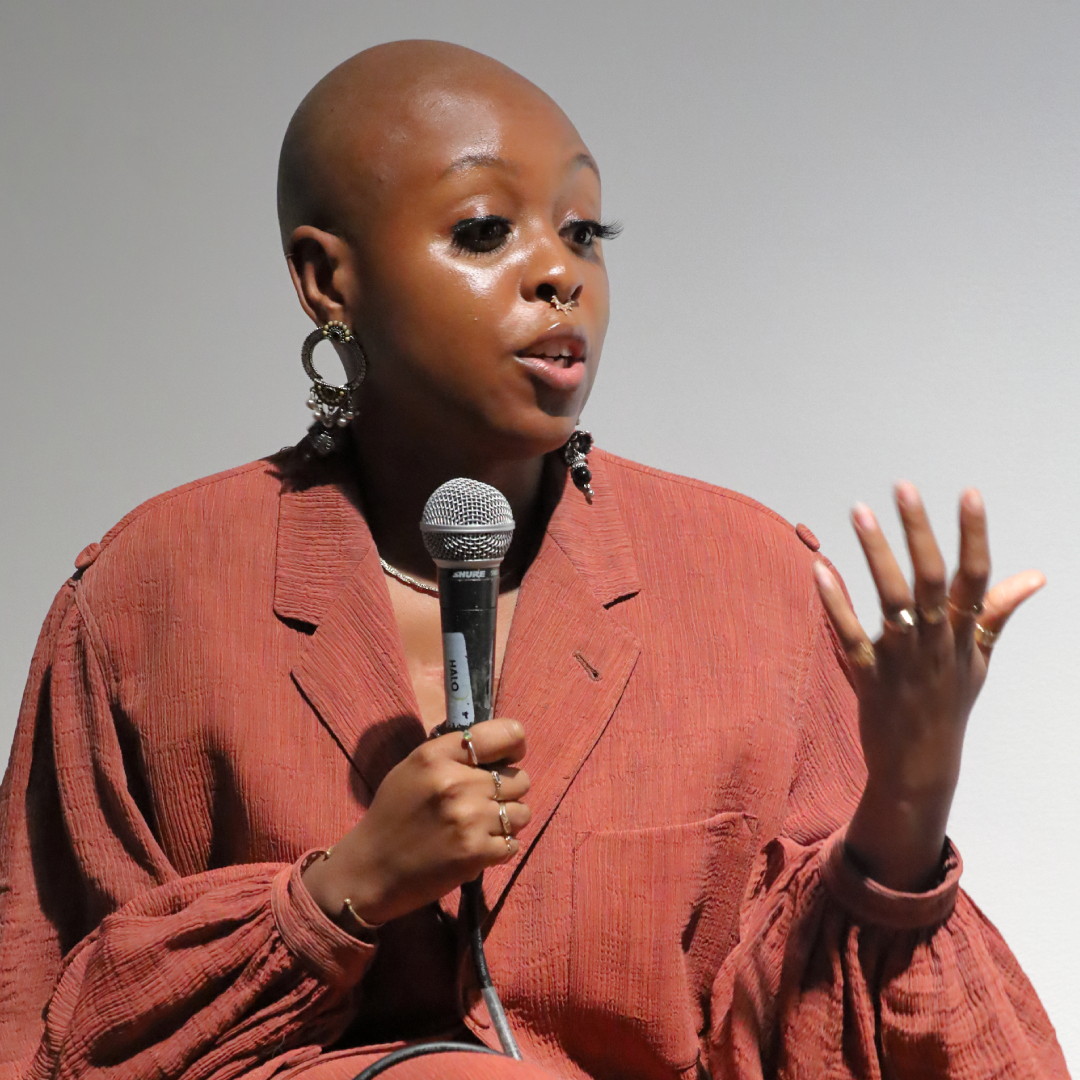
The power of public art to shape narratives was a prominent theme of a Marie Claire panel discussion held this week to celebrate the beginning of London's Frieze Art Fair.
The conversation chaired by Editor in Chief Andrea Thompson marked the launch of a new exhibition by London-based sculptor Rayvenn Shaleigha D’Clark, Digital Flesh: The Texture of Identity at TM Lighting Gallery.
The panel featured the much celebrated artist Rayvenn herself who draws on her experiences as a minority ethnic artist and Marine Tanguy, CEO of MTArt agency and explored themes of representation in our public spaces.
Rayvenn's work is groundbreaking not just because of her skill but also because of its emotional impact. The artist is behind three bronze permanent public art sculptures at the Freedom Monument Sculpture Park in Montgomery, Alabama. Now one of the largest permanent sculptures in the US, it was built to redress depictions of slavery and is one of the largest commissions ever obtained for a woman under 30. Our panel discussion to celebrate Rayvenn's show explored the power of public art to shape conversations around identity and bias.
"In the UK, great strides have been made in the art world," Marie Claire Editor-In-Chief Andrea Thompson told the crowd gathered for the evening. "We now have more women curators than ever, solo shows showcasing powerhouse female artists and a growing spotlight on minority talent, but there is still so much more to do, particularly when it comes to the public art and statues we see around us every day." A staggering reflection of this is that there are more sculptures of Paddington Bear in London than women of colour.
"Images shape us more than words," added Marine who wrote an insightful feature this year for Marie Claire on why imagery matters regarding representation. "When you have a conversation with a friend or a colleague, you will remember 20% of what they said, but you’ll remember 60% of what you saw. Our visual world is what impacts us most strongly."
In public spaces, we still see imagery that reflects our systemic biases. With technology advancing rapidly, these public spaces have shifted to the digital world — and old patterns continue to be reflected in the digital world and AI.
This week's discussion centred around the challenges modern artists face and how art is a powerful tool to challenge biases. The D'Clark who is working with MTArt agency CEO Marine Tanguy, is challenging mainstream narratives and highlighting the beauty and depth of Blackness.
This is what we learned.
WE NEED TO DIVERSIFY THE LANDSCAPE WHEN IT COMES TO SCULPTURE
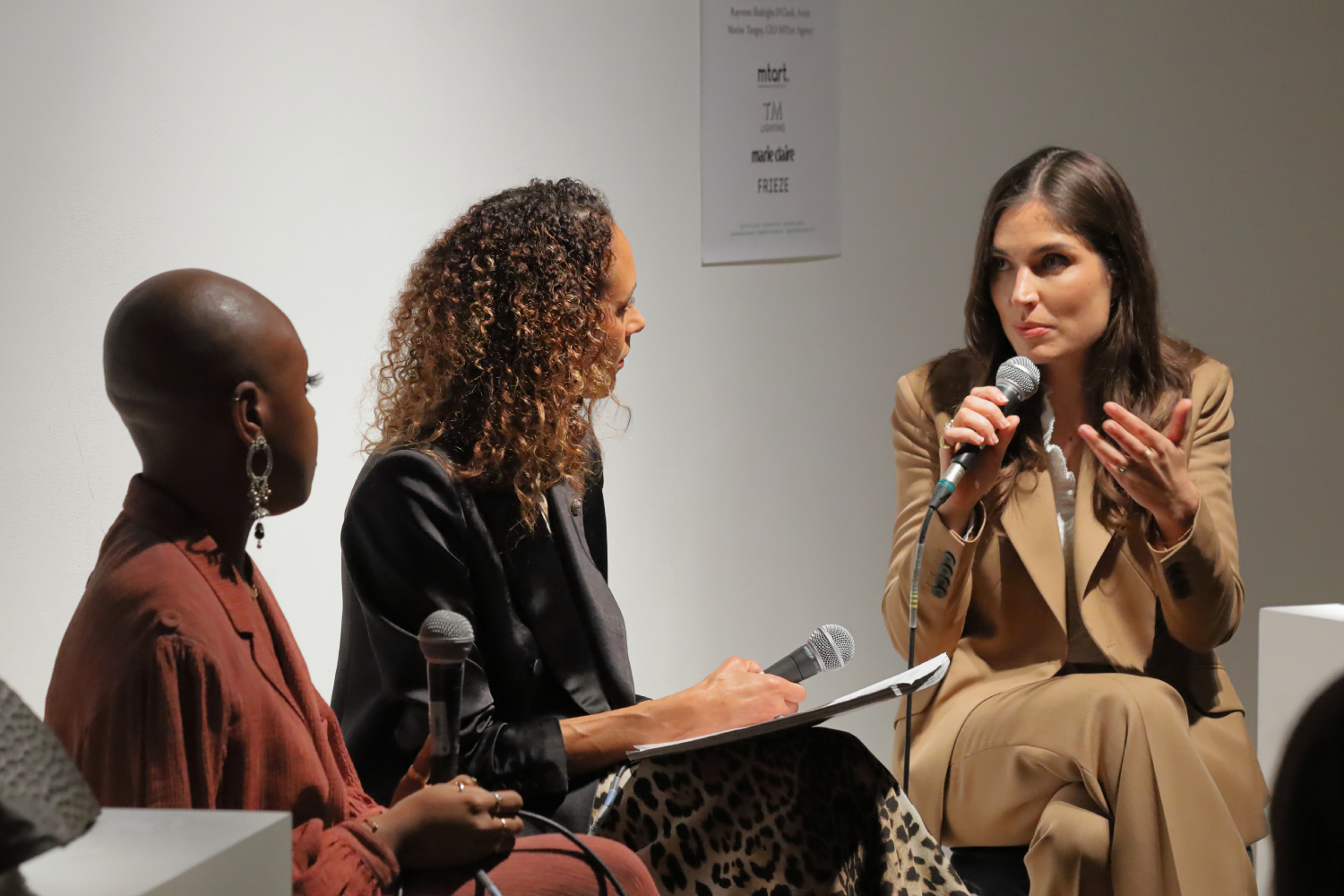
Rayvenn D'Clark is at the forefront of a narrative shift around sculpture. In her hometown of London, the artist explains that she became motivated to diversify the landscape. In the panel, she discusses how these sculptures and murals with "tangible links to slavery" are jarring in a public space, saying, "You wonder why a country who wants to seemingly reconcile their past would keep those statues."
Referencing the 2020 BLM movement, which saw protestors tear down slave trader Edward Colston's statue in Bristol and throw it into the harbour, Rayvenn continued, "We saw the pulling down of Colston and what that meant for a lot of people. And then very quickly, that was followed by the retain to explain rhetoric." She continued, "And really, my impetus and inspiration came from: how can we diversify the landscape? What does that look like in terms of legislation? What does that look like in terms of bidding and funding? And, then, how do we build these sculptures? Where do we implement them? And I think that's been a really big focus of mine throughout uni and into my career now."
REPRESENTATION IN AI IS FAILING WOMEN AND MINORITIES
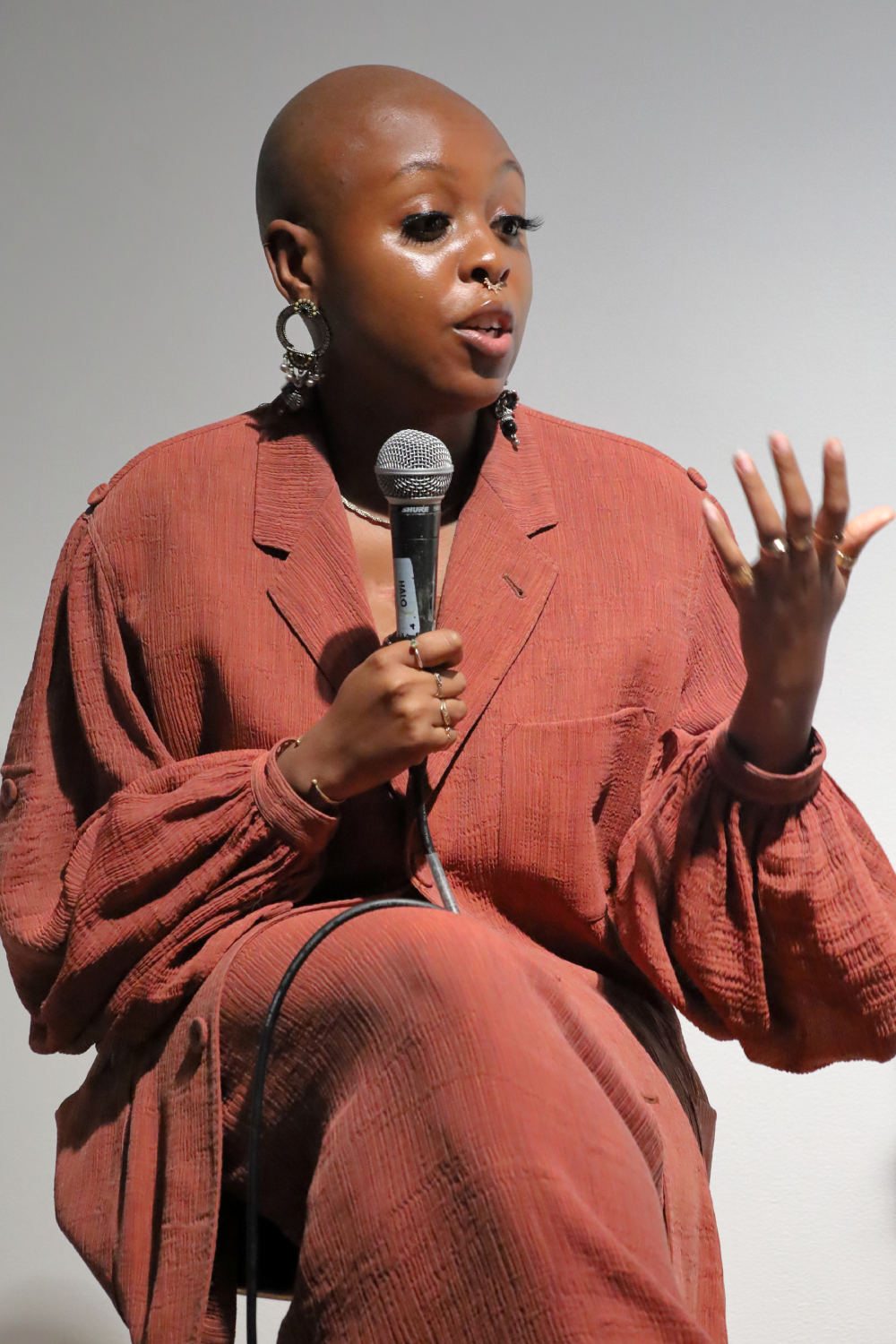
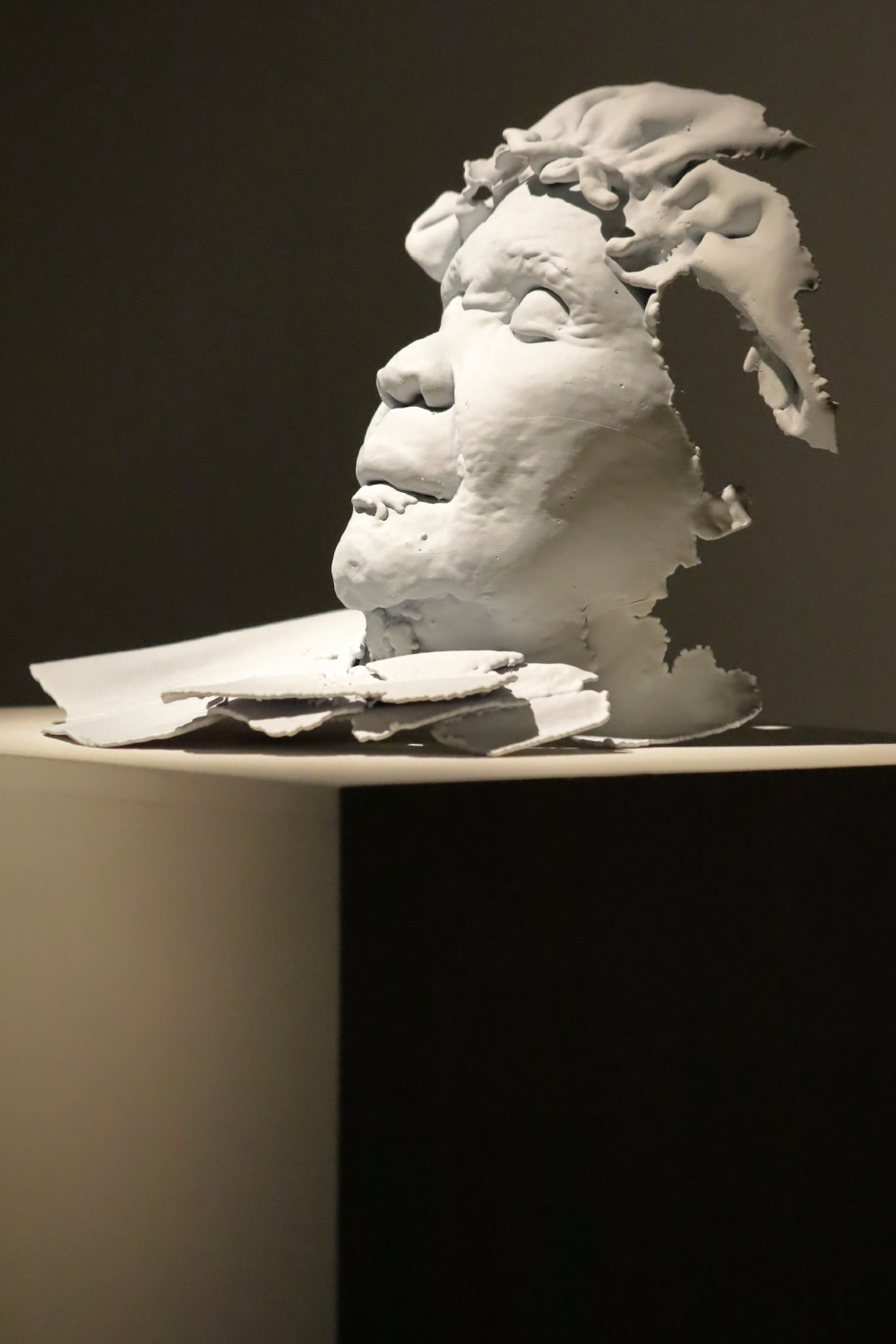
While public sculptures and statues may signify underrepresentation in the past, we need to look to technology to understand how this might look in the future. While the integration of AI into society is still in its infancy, its importance is growing. “By 2050, 75% of what you look at [online] will be AI-based," Marine explained during the discussion. But with a tech sector still primarily dominated by white men (a recent Tech Nation report revealed that men fill 77% of tech director roles), the ripple effect of current biases could have a chilling effect as AI’s influence grows. Rayvenn notes 'The Coded Gaze,' a concept coined by researcher Joy Buolamwini in her MIT thesis, which describes how technology often reflects the biases of its creators.
In terms of my facial recognition, huge biases are being built due to a huge imbalance in women and women of colour being in the industry to help feed into those algorithms
Rayveen's work has seen this theory play out. After incorporating AI tools into the sculpting process, the artist found a "huge amount of bias" regarding facial recognition. "When you get into 3D scanning, and you're looking [...] how the algorithm picks up shapes and images," Rayvenn explained. She continued, "In terms of my facial recognition, huge biases are being built due to a huge imbalance in women and women of colour being in the industry to help feed into those algorithms." The artist added, "It really struggles to pick up darker skin, type of features and darker facial tones. That's something that I'm competing with every day."
BUT SOCIAL MEDIA CAN BE A FORCE FOR GOOD
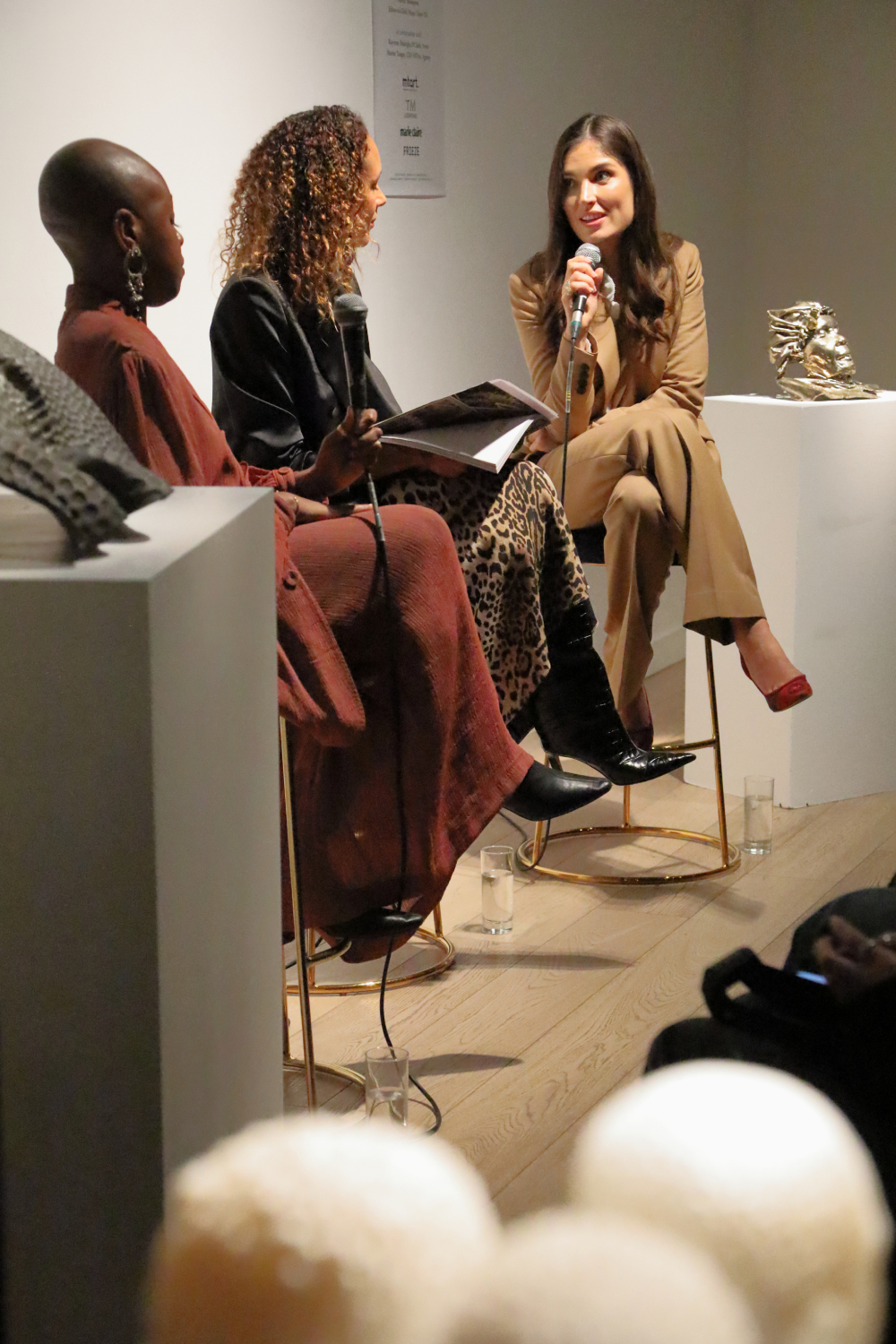
"I'm quite famous for disliking social media," Rayvenn joked with the crowd. But despite her personal feelings, the artist applauded how platforms are able to help unknown artists get noticed. "There's a huge levelling effect that can happen with apps like TikTok and Instagram, where you can just self-publish", Rayvenn continued.
Marine expanded on how this has changed the industry landscape, explaining, " 13 years ago, to be recognised as an artist, you had to know [someone], you had to literally walk in that space, have that contact. So your chances were so small for that to happen — especially if you didn't have any connections."
AS AN ART FAN, ASK QUESTIONS
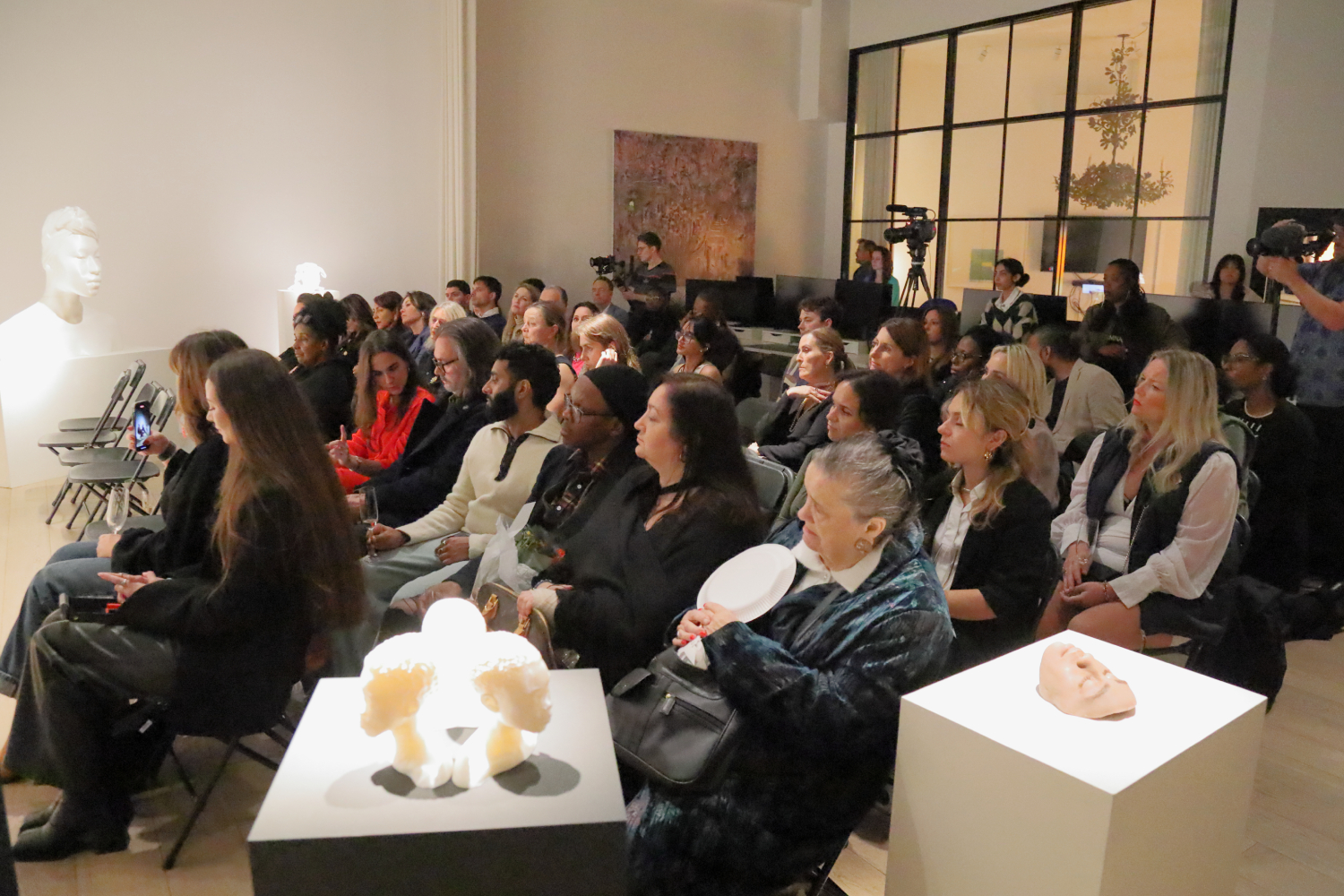
Marine explained that being inquisitive is essential for improving representation in art. In short, never be afraid to ask questions and challenge the norm. "It's interesting to understand what is traditional, what is not, what is challenging, what is not, what kind of narrative you want to see," she said. "If you take one thing away from from this conversation it is to ask questions. None of them would be stupid [...] For some reason, when you walk into an art space, that power of questioning seems lost, but it should be the opposite. Your mind should be filled with questions."
Digital Flesh: The Texture of Identity opened Wednesday, 9th October and runs until 21st November 2024.
By Appointment only.







